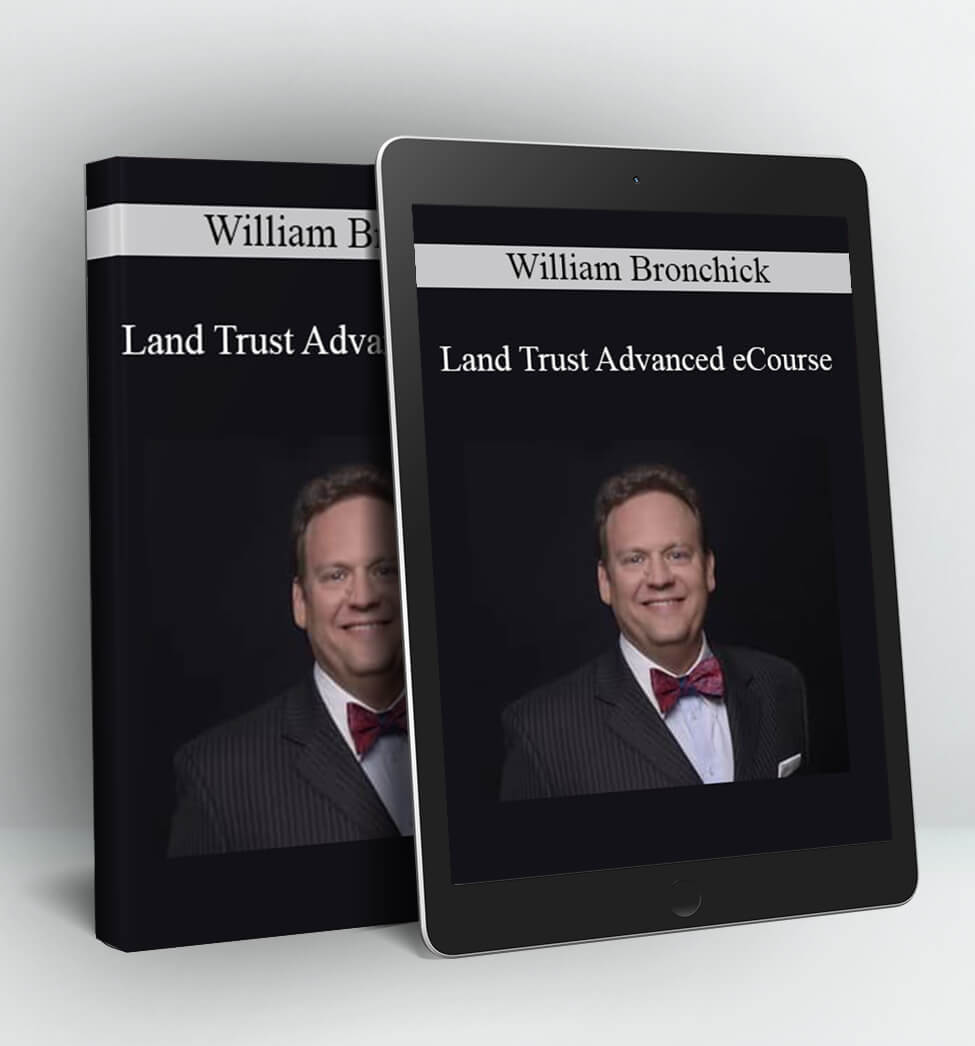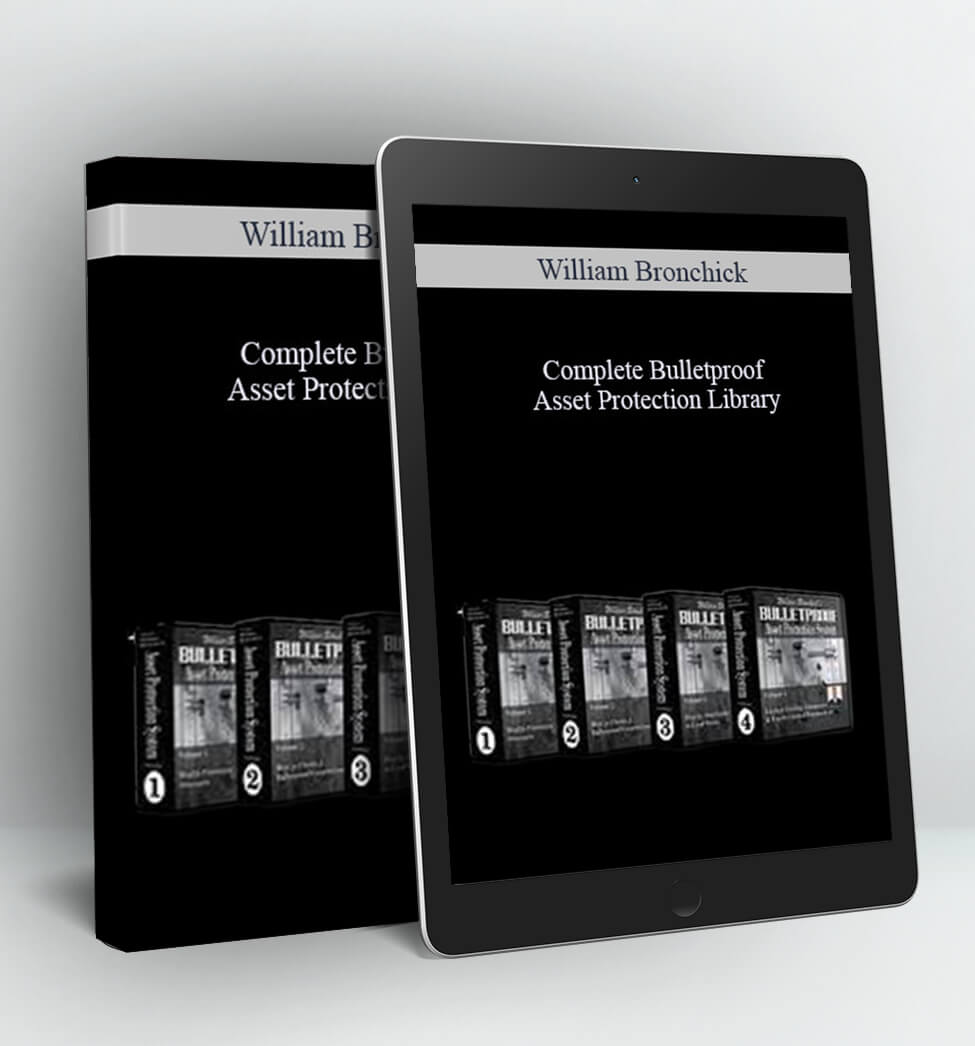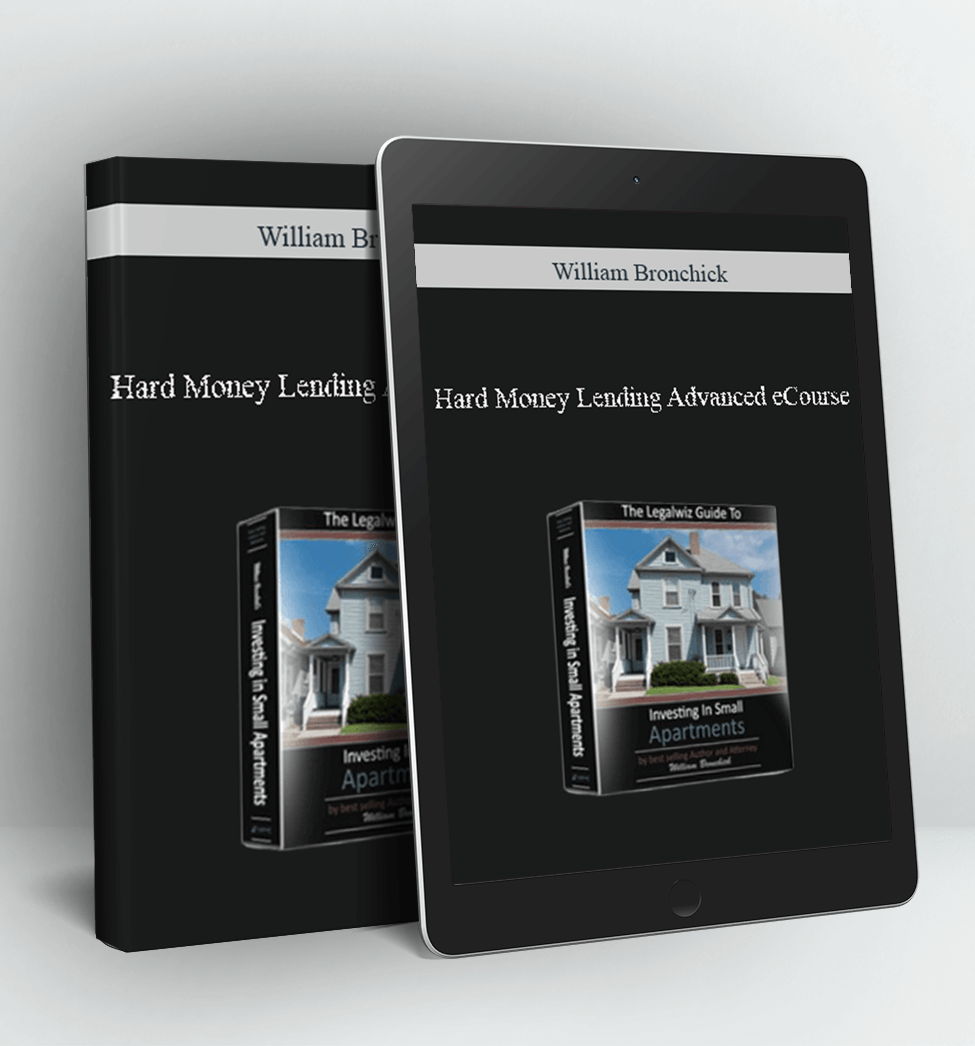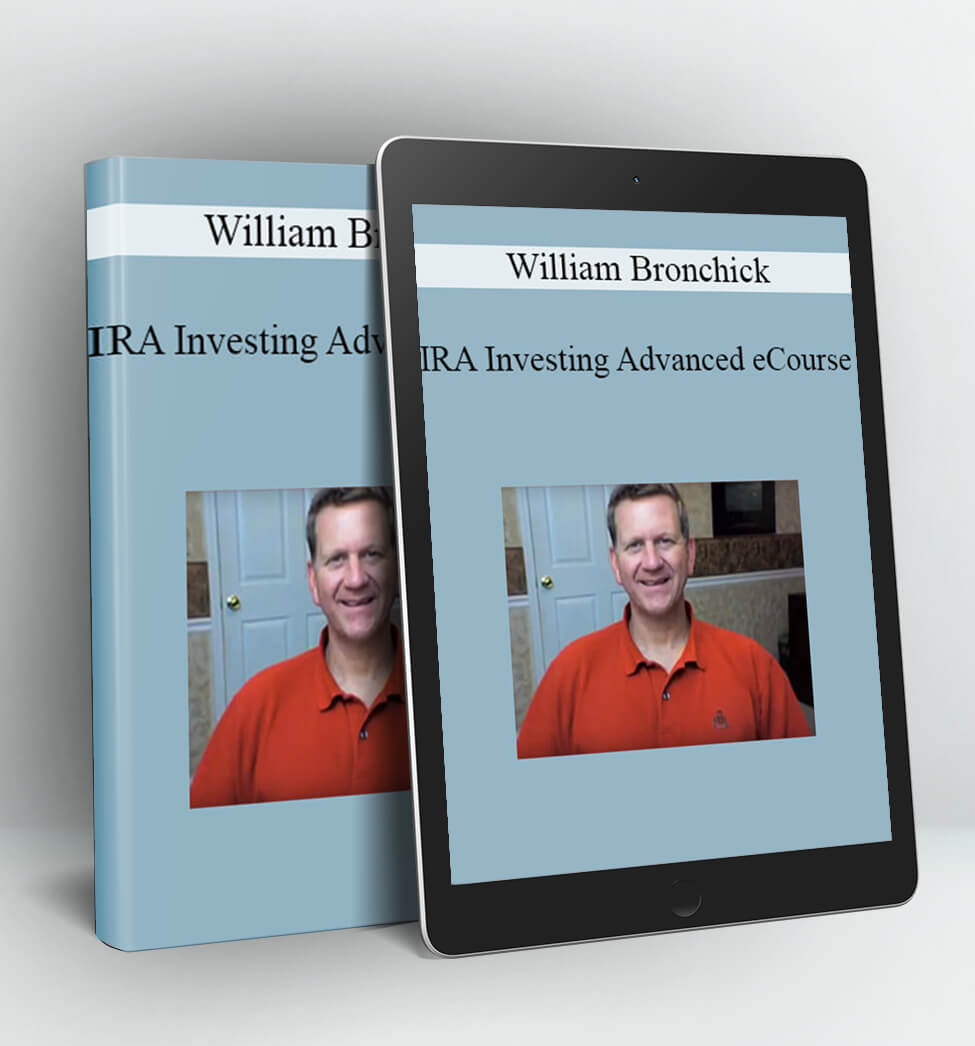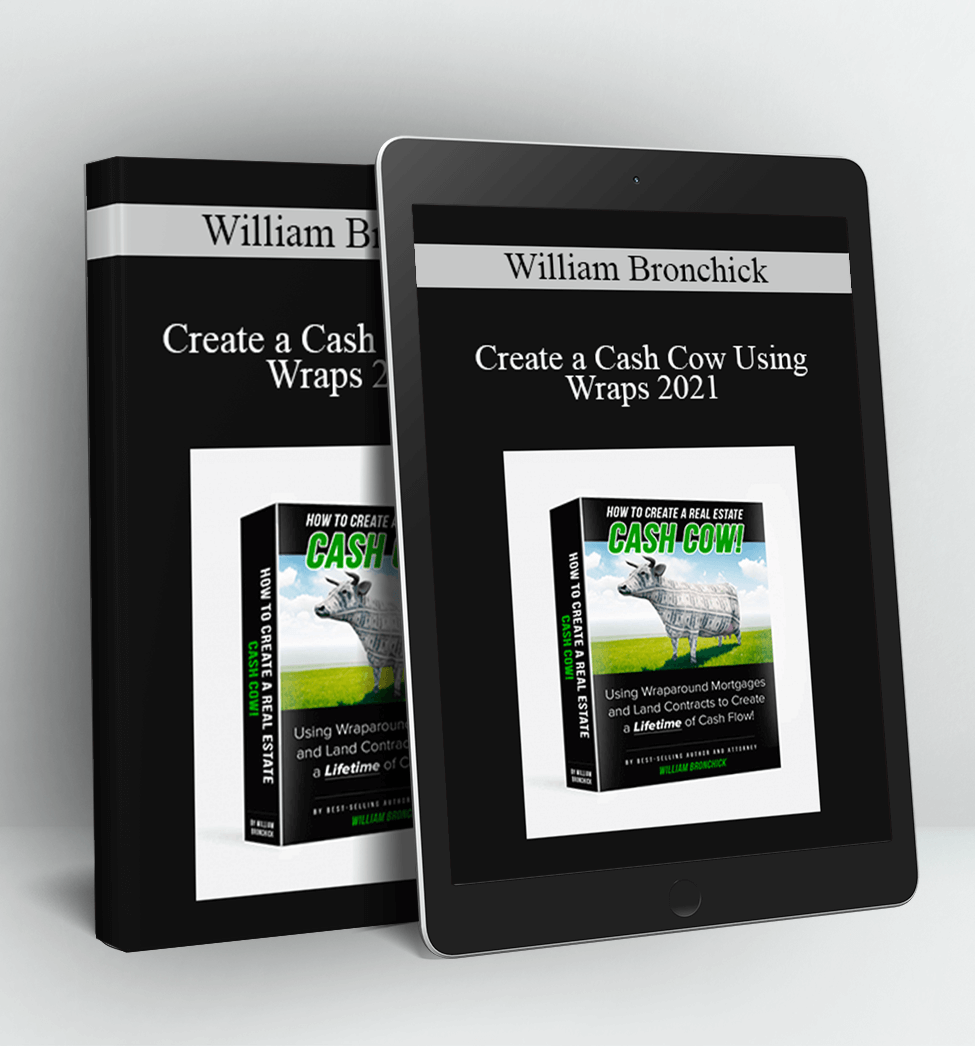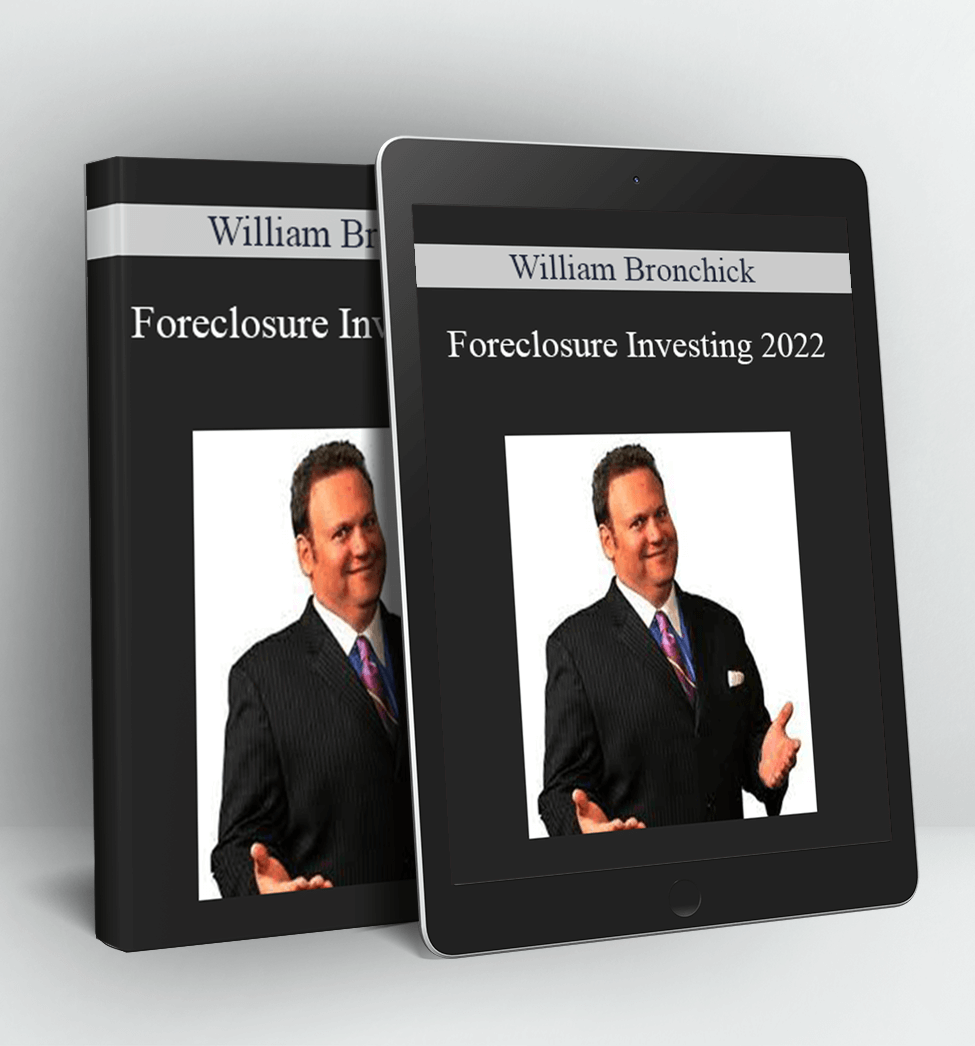Land Trust Advanced eCourse – William Bronchick
From: William Bronchick, ESQ.
Re: How to Protect Yourself from the Litigation Explosion
Dear Entrepreneur and Potential Multi–millionaire,
Do you own real estate in your own name or an LLC? If so, you are a sitting duck for tenant lawsuits, the IRS and code enforcement. Whether you own in your own name or an LLC, the information is public about who’s behind the ownership of your properties, and that makes it difficult to keep anonymity from your tenants and code enforcement officers. Your properties are subject to inquiries, lawsuits, and asset searches. In short, you are naked in a world of information.
Your Odds of Being Sued Are GREATER Than EVER!
Lawsuits are an everyday threat to your financial well–being. Imagine a thug sticking a .357 magnum up to your throat and demanding you turn over your wallet, credit cards, jewelry, and keys to your luxury car. How do you feel? Scared out of your mind? Vulnerable? Violated?You will feel exactly the same way (and maybe worse) when you are hit by a lawsuit and you know you haven’t done anything wrong! I will teach you the skills you need protect yourself from being a target for the “bloodsuckers” and “ambulance chasers.” With impenetrable walls of protection around you, lawyers and greedy plaintiffs won’t be able to touch you or your assets!
Are you a landlord now or do you have plans to own real estate in the future? If you’re ever sued, realize juries are made up mostly of tenants. They are jealous that they don’t own a house and you have several! The way jury members see it, when a landlord has been sued,it’s pay–back time! This is their chance to get even with every landlord whoever hit them with a late rent charge or made them get rid of that pet. And, consider this… most judges earn less than you. How sympathetic could they possibly be? What do think the chances are of getting a fair trial? You might as well just hand over your checkbook and the title to one of your houses – unless you know my protection strategies!
WATCH OUT – The Lawyers Have Their
Targets on Real Estate Investors!
The National Consumer Law Center recently published a report called “Dreams Foreclosed – The Rampant Theft of Americans’ Homes Through Equity–Stripping Foreclosure ‘Rescue’ Scams”. It is a one–sided, wildly exaggerated attack on foreclosure investors that was funded by a left–wing “Consumer Protection” organization. These are the same type of lawyers who sue McDonald’s for making people fat and sue the tobacco companies for causing cancer. Guess what? There are lawyers all over the Country with the same “consumer protection” delusion who are going after real estate investors, and you do NOT have to be one of them! I will teach you how to protect yourself from these opportunists!
Not Convinced? Here’s 5 More Good
Reasons to Hold Real Estate in Trust:
1. Protection from liens. Real estate titled in a trust name is not subject to liens against the beneficiary of the trust. For example, if you are dealing with a seller in foreclosure, a judgment holder or the IRS can file a claim against the property in the name of the seller. If the property is titled into trust, the personal judgments or liens of the seller will not attach to the property.
2. Protection from title claims. If you sign a warranty deed in your own name, you are subject to potential title claims against you if there is a problem with title to the property. For example, a lien filed without your knowledge could result in liability against you, even if you purchased title insurance. A land trust in your place as seller will protect you personally against many types of title claims because the claim will be limited to the trust. If the trust already sold the property, it has no assets and thus limits your exposure to title claims.
3. Discouraging Litigation. Let’s face it, people tend to only sue others who appear to have money. Attorneys who work on contingency are only likely to take cases which they can not only win, but collect, since their fee is based on collection. If your properties are hard to find, you will appear “broke” and less worth suing. Even if a potential plaintiff thinks you have assets, the difficult prospect of finding and attaching these assets will discourage litigation against you.
4. Protection from HOA Claims. When you take title to a property in a homeowner’s association (HOA), you become personally liable for all dues and assessments. This means if you buy a condo in your own name and the association assesses an amount due, they can place a lien on the property and/or sue you PERSONALLY for the obligation! Don’t take title in your name in an HOA, but instead take title in a land trust so that the trust itself (and thus the property) will be the sole recourse for the homeowner’s association’s debts.
5. Making contracts assignable. The ownership of a land trust (called the “beneficial interest”) is assignable, similar to the way stock in a corporation is assignable. Once property is titled in trust, the beneficiary of the trust can be changed without changing title to the property. This can be very advantageous in the case of a real estate contract that is non-assignable, such as in the case of a bank-owned or HUD property. Instead of making your offer in your own name, make the offer in the name of a land trust, then assign your interest in the land trust to a third party.
The land trust home study course shows you step–by–step:
-
- How to remove your name from public records and get the privacy you and your family deserve!
- How to protect your real estate from judgments & liens
- How to buy and sell real estate with complete anonymity
- How to protect yourself from title claims
- How to “assume” loans without personal recourse
- How to avoid probate of your real estate assets
- Creative ways to use a land trust as part of a 1031 Tax–Deferred Exchange
- How to buy & sell real estate without title insurance or “closings”
- How to use a land trust to circumvent the “due–on–sale” provision of a mortgage or deed of trust
- How to use personal property trusts to keep your bank accounts, automobiles, mobile homes and other personal property privateHow to integrate your estate planning living trust with a land trust
- Five creative ways to use land trusts as a real estate investorHow to use a land trust as a security device on real estate transactions
- How to fill out all the paperwork yourself to setup and use land trusts and personal property trusts – without expensive attorney’s fees!

-
-
- 161-page workbook complete with state–specific legal references
- Four Audio CDs recorded from recent live seminar
- CD–ROM with legal forms to create and use LAND TRUSTS
- 50 state guide to land trusts with legal citations (sorry, not valid in Tennessee or Louisiana)
- Personal Property Trust Forms
- Step-by-Step Land Trust checklist
- Priority email support from Bill Bronchick, ESQ.
- Free course and/or form updates for 12 months
-
- And Much, Much More!
Proof Content:
https://www.loom.com/i/1c3025d075a847ba9347c5fd65855626
Delivery Method:
After your purchase, you’ll get access to the downloads page. Here, you can download all the files associated with your order.
Downloads are available once your payment is confirmed, we’ll also send you a download notification email separate from any transaction notification emails you receive from Vinlearn

